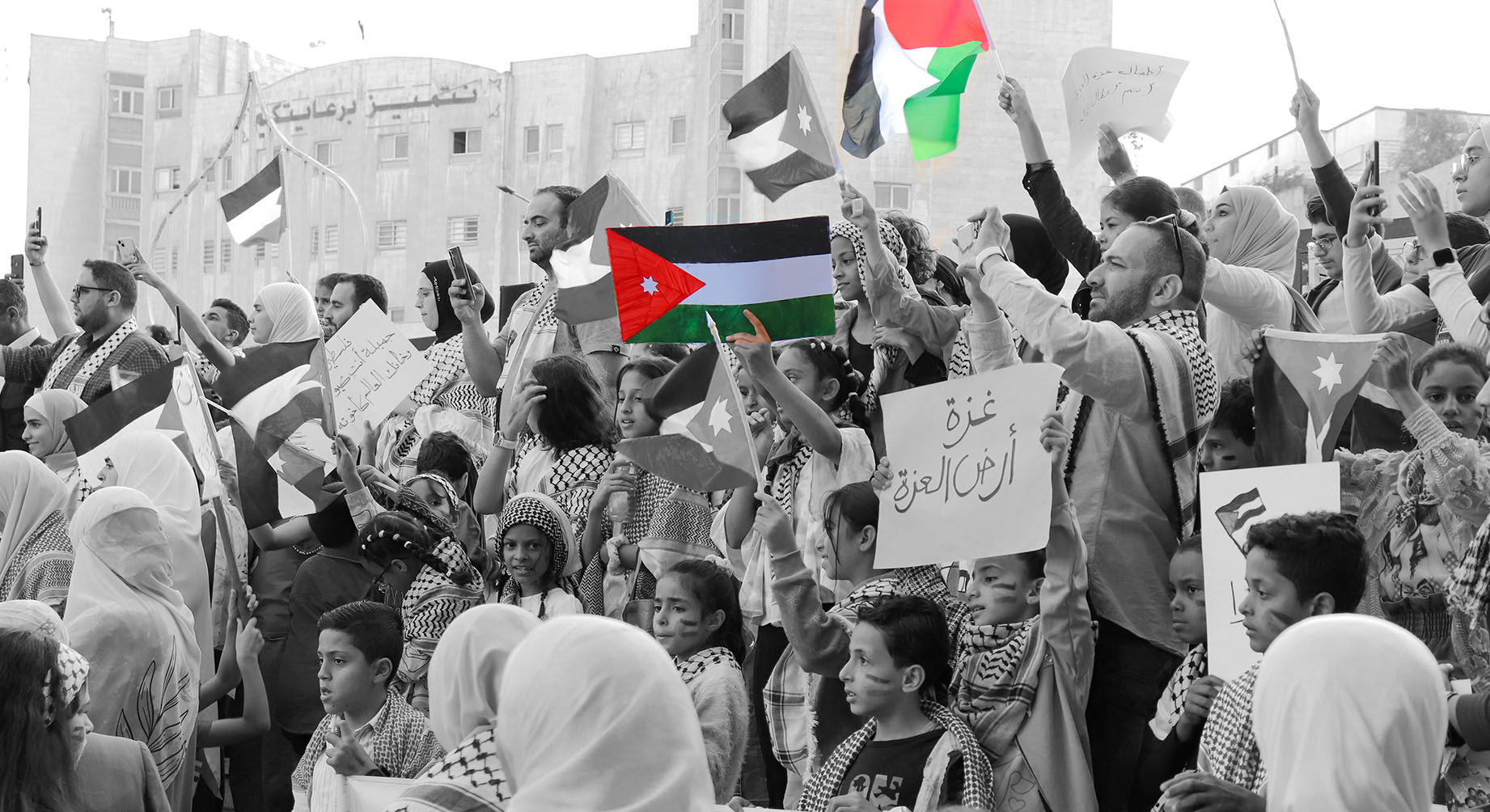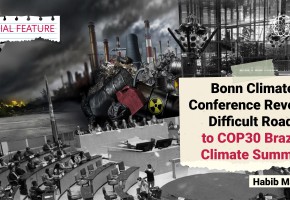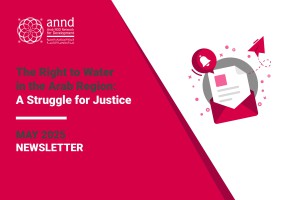
Jordanian Civil Society's Efficacy Is Met with More Restrictions
Prepared by: Phenix Center for Economic and Information Studies - May 2024
Introduction
Despite the various legislative and political restrictions regulating their work, Jordanian human rights civil society organizations (CSOs) have played influential roles in many fields over the past years. They devoted their time to promoting comprehensive sustainable development and defending human rights using various available tools. On the one hand, many continue to monitor civil, political, economic, social, and cultural human rights violations. They actively participate in international mechanisms, notably the Universal Periodic Review (UPR), preparing and submitting statements to the Human Rights Council, and implementing relevant advocacy activities. On the other hand, some CSOs participated in preparing parallel reports for the Voluntary National Review (VNR) on sustainable development goals (SDGs).
In terms of crisis response, Jordanian civil society has proven its capacity to provide various types of support to Syrian refugees in the past thirteen years. Jordan hosts around 1.3 million Syrian refugees, regardless of their legal classification by international organizations.
Recently, since the start of the Israeli aggression on Gaza, many Jordanian CSOs conducted several interventions. On the one hand, many CSOs actively collected donations and sent them to the Gaza Strip, participating in solidarity marches in the Kingdom's various governorates. They organized advocacy activities at the local and international levels, holding forums inside and outside Jordan to expose the crime of genocide practiced by the Israeli occupation state against Palestinians. They also signed dozens of local, regional, and international petitions against the continued Israeli occupation of Palestine, the crimes it is committing against the Palestinians, the double standards of major Western countries in addressing human rights and international law, and their political and military support for the continuing war on Gaza.
As the Israeli genocidal war on the Gaza Strip escalated, several Jordanian CSOs engaged in sharp and heated dialogues and discussions with international and diplomatic missions, especially those whose governments sided with the Israeli aggression. The Coordination Committee for Civil Society Organization (Himam) and many others held meetings to condemn the positions of international institutions like the OHCHR. They also met with the ambassadors of the EU and EU countries aligned with the aggression against Gaza. Moreover, several forums discussed the human rights aspects of the Israeli aggression according to international law, which included various Palestinian and international figures.
The Shrinking Space for Freedoms
Jordanian civil society understands its role as a critical player in the social movement during crises and wars. The historical and close connections between Jordan and Palestine continue to motivate escalating protests, the use of various tools of pressure, and mobilizing support to influence an end to the war and genocide practiced by the Israeli occupation state in Palestine, especially in Gaza.
Along with emerging challenges, the deep-rooted gaps facing civil society linked to undermining civil liberties intensified. In 2004, Freedom House classified Jordan as "not free" due to the constant and worsening violations of civil society's space.i
During the past six months, the pace of peaceful demonstrations and gatherings in Jordan increased regularly, almost daily, all over the Kingdom. They continue to protest Israel's war on the Gaza Strip and express solidarity with the Palestinians. Civil society had been on the frontline of demands to stop the Israeli aggression on Gaza, cancel all Jordanian agreements with the Israeli occupation, and end the Israeli occupation of Palestine.
However, these protests were not free of harassment. The Jordanian government arrested dozens of the men and women civil and political activists who participated in and led demonstrations. People expressing their solidarity with the Palestinians in the Gaza Strip through posts, comments, or reposts on the internet were subject to digital surveillance by the government and similar harassment. The new cybercrime law imposed further restrictions on the space for civil and societal action and freedom of opinion and expression. Article 17 of the law prohibits using the Internet or social networks to publish content that may provoke conflict under the threat of heavy fines or imprisonment for up to three years. The Cybercrime Law faced widespread criticism during its adoption last year due to its impact on the fundamental freedoms and rights guaranteed by the Jordanian Constitution and international human rights treaties. Critics also feared the law would stifle digital civil space.
In the past few months, the Jordanian government and Parliament adopted a new law regarding the Ministry of Planning and International Cooperation that increased restrictions on CSOs. It consolidated the previous restrictions related to obtaining prior approval from the Prime Minister for any grants obtained by CSOs. The restrictions were expanded to include private sector institutions alongside community organizations, forcing them to get the approval of the Prime Minister before receiving financial or in-kind development grants.
In early 2024, the Ministry of Social Development adopted a new law restricting the work of associations and their ability to collect local donations, which would limit their effectiveness in practice.
Reshaping Relations with International Partners
Jordanian CSOs have accelerated their steps toward re-evaluating their relationships with international partners, a sometimes unbalanced relationship plagued by various obstacles. Many Western countries sided with Israel in its war on Gaza and provided political, economic, and military support to the occupying state.
A few CSOs stopped receiving grants from those governments. Most of them had been refusing to enter into partnerships with the US government and its agencies even before the recent war on Gaza. However, the genocidal war accelerated the process of forging more balanced relationships between donor partners and CSOs. In the first weeks of the war, some Western donors had pressured Jordanian CSOs not to engage or sign petitions criticizing the Western position in support of Israel. The vast majority of Jordanian CSOs rejected this interference, leading to the suspension of some joint projects. The ensuing turmoil in relations with international partners (donors) led many CSOs to cancel joint agreements.
On the other hand, international partners affiliated with some Western governments suspended their agreements with some Jordanian CSOs committed to their pro-Palestinian positions and critical of Western countries. Some suffered economic challenges, mainly since local funding for human rights and development activities in Jordan is limited legally and politically. The relationship between some international partners and some Jordanian CSOs remains troubled.ii
In conclusion, three main tracks have been identified to enhance the independence of CSOs in Jordan in light of recent political developments. The first includes redefining the relationship with international donor partners by developing a document of principles on funding specifications that are consistent with the values of the human rights system and rejecting any politically conditional funding. It should also strengthen the idea of participatory relations between both parties. The second track focuses on networking and strengthening alliances between CSOs towards horizontal partnerships. It includes developing a vision for a solidarity system to confront political pressures from donors. The third track is to search for alternatives to financing that guarantee independence and protect from financing conditionalities.iii
CSO Interaction with International Mechanisms
The worsening humanitarian and political conditions in Palestine did not prevent Jordanian CSOs from engaging in the UPR mechanism. Out of several coalitions, the Insan Coalition refrained from completing advocacy activities inside Jordan and in the Swiss capital, Geneva, in protest against the double standards used by Western countries in dealing with human rights issues, especially the right of the Palestinian people to self-determination and resistance to occupation. On January 25, 2024, as Jordan stood before the Human Rights Council in Geneva, the Insan coalition abstained from advocacy during the UPR's fourth session, along with many civil society activists and human rights defenders, in objection to double standards in the application of international humanitarian law and boycotting with parties involved in war crimes in the Gaza Strip.iv
However, most Jordanian CSOs participated in the UPR's various stages after writing and submitting their reports (testimonies). Dozens of organizations and alliances, including the National Alliance, the Jordanian Civil Alliance, and the Tatweer Alliance, were present.
In the same context, Human cooperated with ANND and the Swiss Association for the Prevention of Torture held a forum entitled Human Rights at a Crossroads: Re-evaluating global obligations and their effectiveness. The forum discussed the double standards of major Western governments regarding human rights, especially in Palestine. The forum was held on the side at Jordan's fourth UPR session in Geneva and was attended by dozens of civil, political, and legal activists, diplomats, UN representatives, and Swiss associations. The discussions focused on the urgent need to re-evaluate the principles and mechanisms underlying the international human rights framework. They highlighted the importance of accountability and the role of international human rights organizations in supporting justice.
Localizing Humanitarian Work
Recently, calls have increased among Jordanian civil society circles about the need to enhance localization in humanitarian and development work. Localization is mainly based on giving local partners more roles in development initiatives and promoting human rights and humanitarian work to enable CSOs to lead, design, and implement effective projects. However, this process depends on an enabling and supportive environment for civil society.
Many civil society coalitions, especially the Joran National NGOs Forum (JONAF),v called for a focus on localism in humanitarian and development work in Jordan as a necessary step to enhance civil society's independence and effectiveness. The comprehensive representation of Jordanian CSOs in decision-making and implementing programs and projects must be improved to ensure a broader and more accurate representation of the needs of local populations and achieve a balance of power between international and national efforts.
References
i Freedom house, (2024) freedom in the world country report 2024 Jordan: Freedom in the World 2024 Country Report | Freedom House.
ii The Phenix Center for Economic and Information Studies has prepared a study on the quality of funding for CSOs, the results of which will appear within a few weeks. In its context, an index has been developed to evaluate international partners’ commitment to the standards of the quality of funding they provide to CSOs and enhancing their effectiveness and independence. On the other hand, the Coordination Committee for Civil Society Organization (Himam) prepared a study on the independence of Jordanian CSOs and developed a roadmap for options that can be used to enhance their independence and effectiveness.
iii خزوز، تمارا ومنير، محمود، المجتمع المدني والاستقلالية: مسارات العلاقة مع الجهات المانحة في ضوء العدوان الإسرائيلي على غزة، "مساحات مقيّدة أم فرص جديدة؟"، هيئة تنسيق المجتمع المدني " همم"، 2024
iv Insan is a CSO coalition founded in 2012 by a group of CSOs and human rights activists. It currently consists of 25 Jordanian CSOs specialized in submitting UPRS reports.
v JONAV consists of a group of Jordanian civil society organizations providing humanitarian aid to Syrian refugees.
Recent publications

Bonn Climate Conference Reveals the Rough Road Towards COP30 in Brazil - Habib Maalouf
